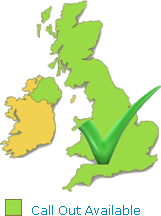-
Flea Treatment and Information
Pest Control – Fleas
To get your free flea removal quote click here.-

There are a few different types of fleas but the most well known are dog fleas and cat fleas. Human fleas used to be a problem too but they are very rare nowadays. Fleas don’t have wings and they tend to jump from place to place. They are absolutely tiny, between 1/12th and 1/6th of an inch. Fleas are parasites with very sharp mouths; they attach themselves to hosts and use their mouthparts for piercing the skin and sucking out the blood. Fleas lay eggs on the ground, in nests, in carpets, bedding, blankets, upholstered suites or cracks in the floor. The eggs then hatch where they lay, between one and two weeks later. The larvae born from the egg begins feeding straight away on organic debris and is particularly partial to the faeces of adult fleas, which contains a quantity of undigested blood, which they thrive on.
Fleas most often enter the home via domestic pets. Cat fleas are the most common type and if you discover that your pet has fleas you can be pretty sure that they will have begun making a home for themselves throughout the rest of your property. The larvae from fleas loves nothing better than to develop in dry, warm conditions, such as bedding, carpets and homes with central heating.
Although fleas do not directly spread diseases, dog fleas have been known to transmit dog tapeworm to humans and fleas give their hosts annoying little bites, which can become infected if they are over-scratched.
Unfortunately animals are prone to fleas and there is very little you can do about that other than regularly washing them and treating them with a flea shampoo. You should also thoroughly wash all pet bedding at least two or three times a week and tumble-dry if possible as well. Infestation tell-tale-signs include small red bite marks on your body which are usually very itchy and you would probably notice your pet scratching more than usual.
Minor flea infestations can be treated with insecticides from hardware stores, pet shops or your local veterinary surgery. These come in powders, sprays and shampoos and can be used to treat sheets, blankets, carpets, curtains, drapes, upholstery and throws. You can get a flea collar to put round your pet’s neck, which will regularly release small quantities of insecticide onto your pets fur, it is not strong enough to kill fleas outright but it acts as a good repellent.
If you are unfortunate enough to have a flea infestation in your home then you should call in the pest control professionals immediately for advice. Prior to them arriving at your property you should ensure that you have begun to combat the flea problem by thoroughly vacuuming the entire house, including upholstery to remove animal hair, fleas, flea eggs and pupae. You should take any pets to the vet for full flea treatment and you should ensure all bins and vacuum bags are disposed of out with your house. You should also ensure your house is free of clutter.
Pest control experts have many years experience in eradicating homes of flea infestations so you will have no worries once you have spoken with them.
-
Call Me Back Now

- Area Covered

 See All Locations
See All Locations